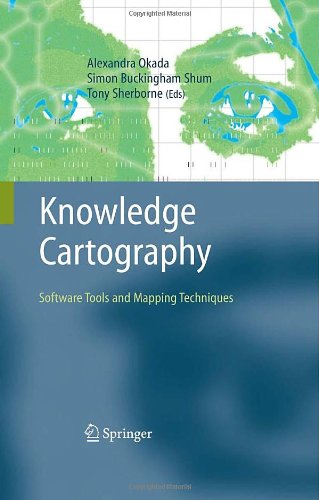

Most ebook files are in PDF format, so you can easily read them using various software such as Foxit Reader or directly on the Google Chrome browser.
Some ebook files are released by publishers in other formats such as .awz, .mobi, .epub, .fb2, etc. You may need to install specific software to read these formats on mobile/PC, such as Calibre.
Please read the tutorial at this link: https://ebookbell.com/faq
We offer FREE conversion to the popular formats you request; however, this may take some time. Therefore, right after payment, please email us, and we will try to provide the service as quickly as possible.
For some exceptional file formats or broken links (if any), please refrain from opening any disputes. Instead, email us first, and we will try to assist within a maximum of 6 hours.
EbookBell Team

4.3
68 reviewsKnowledge Cartography is the discipline of mapping intellectual landscapes. The focus of this book is on the process by which manually crafting interactive, hypertextual maps clarifies one’s own understanding, as well as communicating it.
The authors see mapping software as a set of visual tools for reading and writing in a networked age. In an information ocean, the primary challenge is to find meaningful patterns around which we can weave plausible narratives. Maps of concepts, discussions and arguments make the connections between ideas tangible and disputable.
With 17 chapters from the leading researchers and practitioners, the reader will find the current state–of-the-art in the field. Part 1 focuses on educational applications in schools and universities, before Part 2 turns to applications in professional communities, but with many cross-cutting themes:
Knowledge Cartography will be of interest to learners, educators, and researchers in all disciplines, as well as policy analysts, scenario planners, knowledge managers and team facilitators. Practitioners will find new perspectives and tools to expand their repertoire, while researchers will find rich enough conceptual grounding for further scholarship.